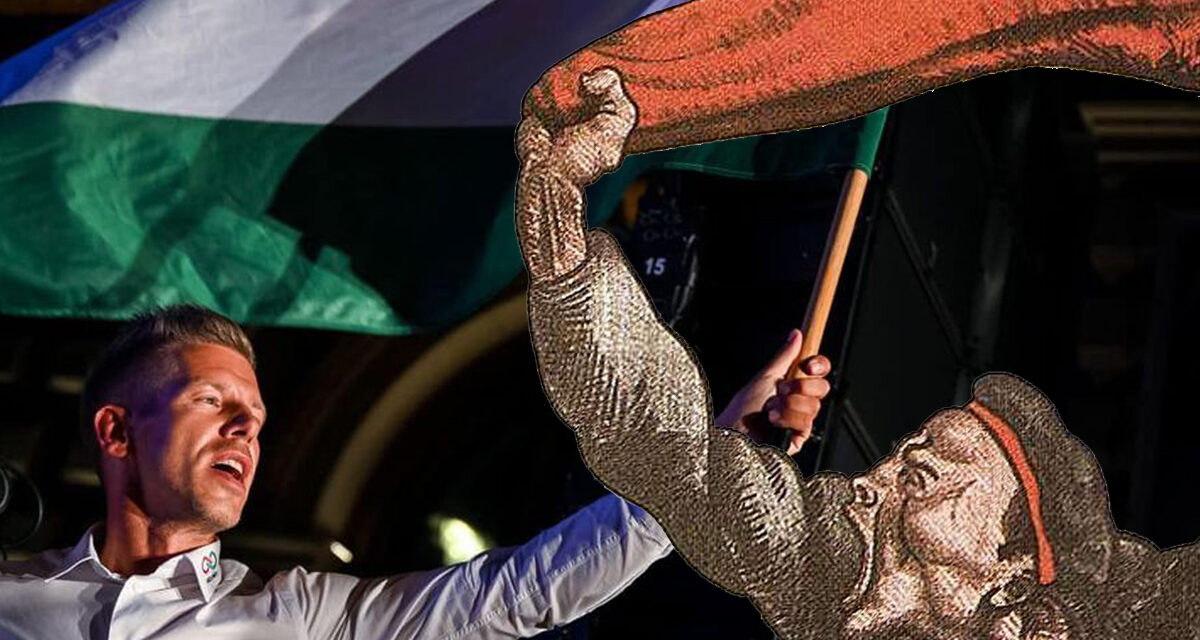I understand, but I don't like that contemporary political communication is organized exclusively along the lines of infantilism and indignation. Written by Áron Ambrózy.
From the political heritage materials that can be extracted from various Facebook fossils, it became clear that Péter Magyar will make himself useful as a full-time quality inspector from the fall. According to his promise, he will carry the bag of indignation throughout several areas of the Hungarian state, with which he will call his supporters to fight and make angry comments. This is a great help for Hungarian families.
I understand, but I don't like that contemporary political communication is organized exclusively along the lines of infantilism and indignation. The goal is purely muciological, injustices everywhere must be pointed out, possibly researched scientifically, and then presented to the public by evoking Aunt Lenke from the Neighbors novel.
The methodology is extremely complex: we react to everything with anger/disappointment, expressing our dissatisfaction that we feel that things are bad. Finally, we state that we want good things because we are good people.
This would look something like this in dialog form - not so simplified:
- Look, ladies and gentlemen, my dear followers, here is a bad thing, I just found it! says Péter Magyar and shows the camera the bad thing.
"It's outrageous that there are such bad things in this country!" - says the Nép, and the wiser one also comments with mediocre spelling, not just putting an angry head under the live stream.
- Bad things happen because the masters, the leaders, the big ones are bad. If the gentlemen and the leaders were good, then things would be good too! Péter Magyar explains the complicated connections.
"What a truth this is, I don't even care where you're going, I'm following you!" - answers the People accompanied by a combination of red, white and green hearts.
This is certainly the case in the land of the Unicorns or among the honest and hardworking people of Tesz-Vesz-Város. There, all good people elevate all good leaders above themselves, who do all good things to the complete satisfaction of all good subjects.
It's just that we live in the so-called reality, in the so-called 21st century, when we see that all over the world, the good people who flaunt a lot of virtues and morals destroy everything as it is written in the big book. And politicians who are called cynical, calculating, and populist govern for the benefit of their country.
Anyone who only offers good things and an appropriate ideology should be treated with suspicion!
For example, there are these certain hospitals where bad things were discovered with the help of a thermometer and inspection. Well, we have a financial deficit that will take decades to work out, and even the miracle-working messiah won't be able to change this with the laying on of hands and cucumber photos of himself. On the other hand, there is a so-called institutional responsibility: where the Comrade Director General refused to turn on the air conditioning or refill the toilet paper twice a day, while everything was at his disposal, he should be fired. And then not to whine about what kind of carnage the police have orchestrated in the health sector.
And then the lesson at the end:
why was it necessary to hire an opposition politician as a quality inspector?
As if there is a state body for this sort of thing - at least that's how I remember it. I could even broadcast on Face how they attack one by one the principal who does his job not so enthusiastically and not so much to the satisfaction of the public. We would be further inside.
Featured image: Civils.Info













